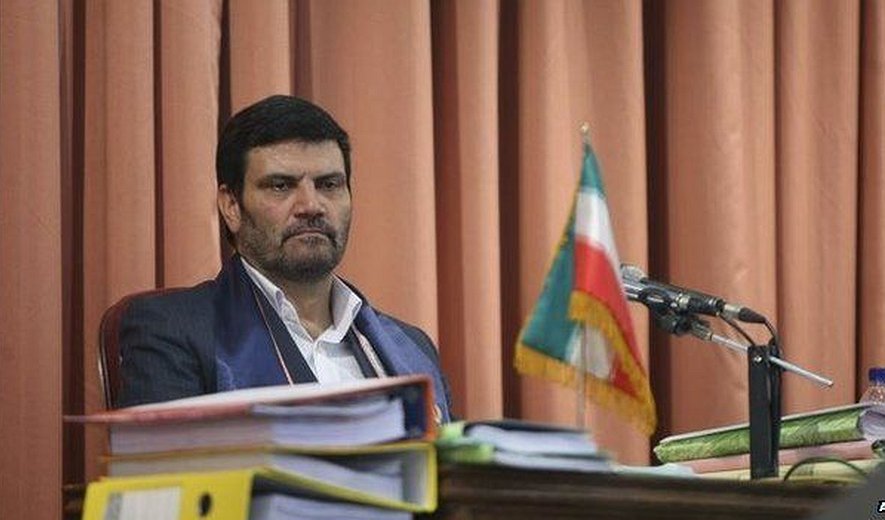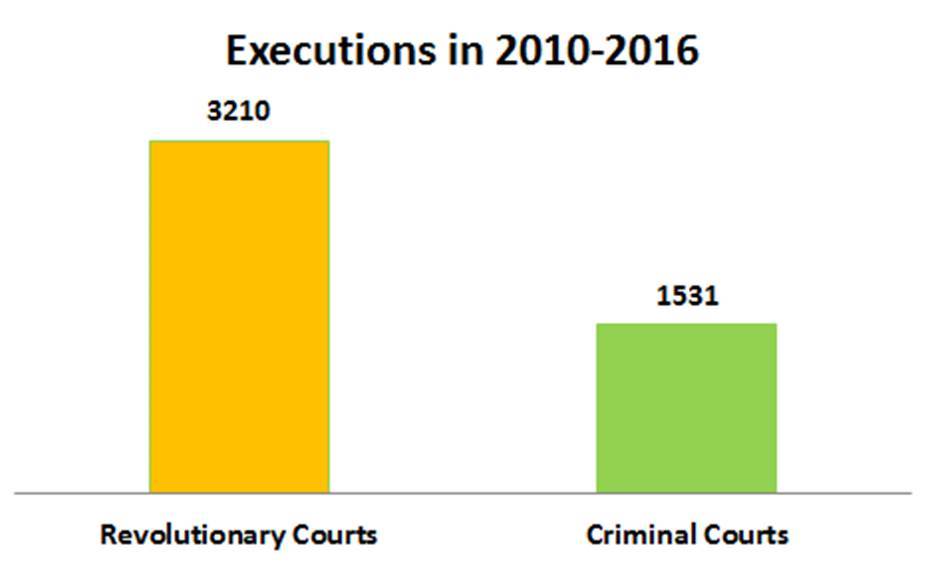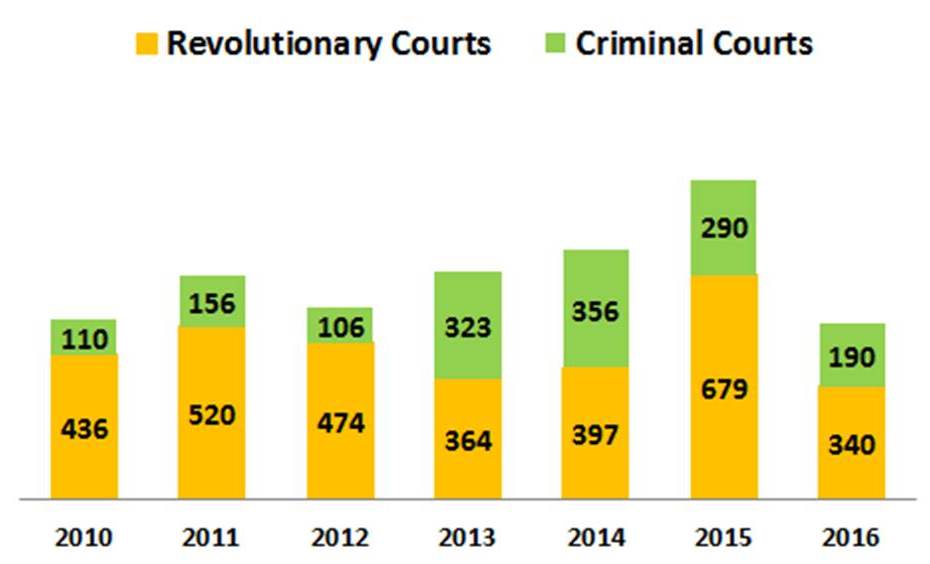Revolutionary Courts Responsible for Majority of Executions

IRAN HUMAN RIGHTS (APR 14, 2017): Iran Human Rights' annual report on the death penalty in 2016 takes a closer look at the issue of due process and the role of the Revolutionary Courts.
The Revolutionary Courts were established in 1979 by the first Supreme leader, Ayatollah Khomeini. They were temporary courts designed to deal with the officials of the former regime. However, more than 37 years later they continue to operate. These courts are responsible for the vast majority of the death sentences issued and carried out over the last 37 years in Iran. The Revolutionary Courts are less transparent than the Public Courts (both criminal and civil) and Revolutionary Court judges are known for greater abuse of their legal powers than other judges. Revolutionary Court judges often deny access to legal representation during the investigation phase and prevent lawyers from accessing client files on the basis of confidentiality, or the fact that the lawyers have insufficient “qualifications” to review certain files. Trials lasting only a few minutes, no jury, no defence lawyers and death sentences based on no evidence other than confessions extracted under torture are the hallmarks of the Revolutionary Courts.
All cases regarded as security-related, such as cases involving political and civil activists, and others allegedly involved in corruption and drug-related charges, are processed by the Revolutionary Courts.
Revolutionary Courts responsible for the majority of executions
Revolutionary Courts are most well known for the summary executions of the political opposition in the 1980s. However, data collected by IHR shows that every year several hundred people are executed on the basis of death sentences issued by the Revolutionary Courts.

The diagram above is based he IHR reports since 2010 and shows that 3,210 of the 4,741 executions (68%) in the last seven years were based on death sentences issued by the Revolutionary Courts.

At least 340 of the 530 executions in 2016 (64%) were based on death sentences issued by the Revolutionary Courts. Numbers for the previous six years are presented in the diagram above.
Revolutionary Courts also play a key role in the crackdown against human rights defenders and the abolitionist movement. In 2016 the Revolutionary Courts sentenced the human rights defenders Narges Mohammadi and Atena Daemi to 10 years and seven years in prison respectively for their activities against the death penalty.
On the issue of the lack of due process, the spokesperson of IHR, Mahmood Amiry-Moghaddam said: “A sustainable reduction in use of the death penalty is impossible as long as there is no due process. Revolutionary Courts which sentence hundreds of people to death every year are among the key institutions responsible for Iran’s violations of due process and must be shut down.”


